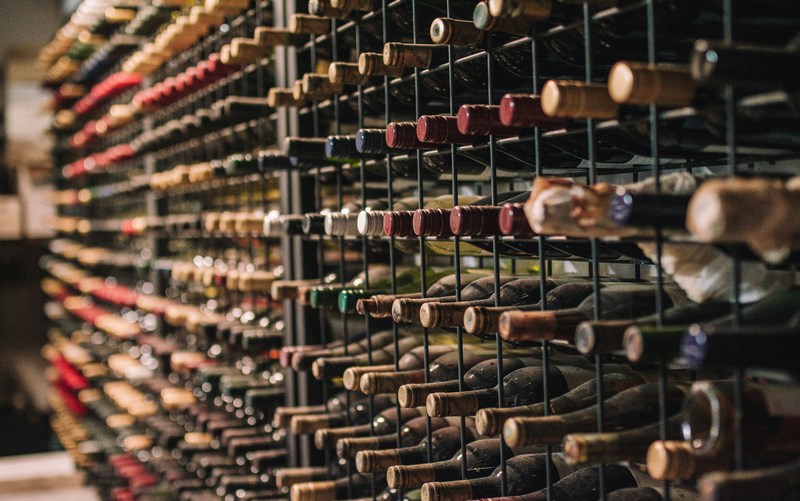
Planning a well rounded wine cellar collection
I recently read this article on ft.com titled Nine Ways to Build an Affordable Wine Cellar which I thought was a really helpful guide.
Our customers may have fabulous wine cellars, wine rooms and wine storage solutions, but the idea of filling it can be a little daunting. Many customers really know their wines, other will just buy what they like (that’s what I do!) or perhaps you just want a well rounded collection for event event and meal, both for guests as well as yourself.
Here are some thoughts about starting a 300 bottle wine collection
Set a Budget
- Before you start buying, decide on a budget. Wine collecting can be expensive, so it’s important to set a limit on how much you want to spend per bottle and overall.
- A good strategy is to allocate your budget across different price ranges. For instance, you might spend more on high-quality wines intended for aging, while also including more affordable, everyday wines.
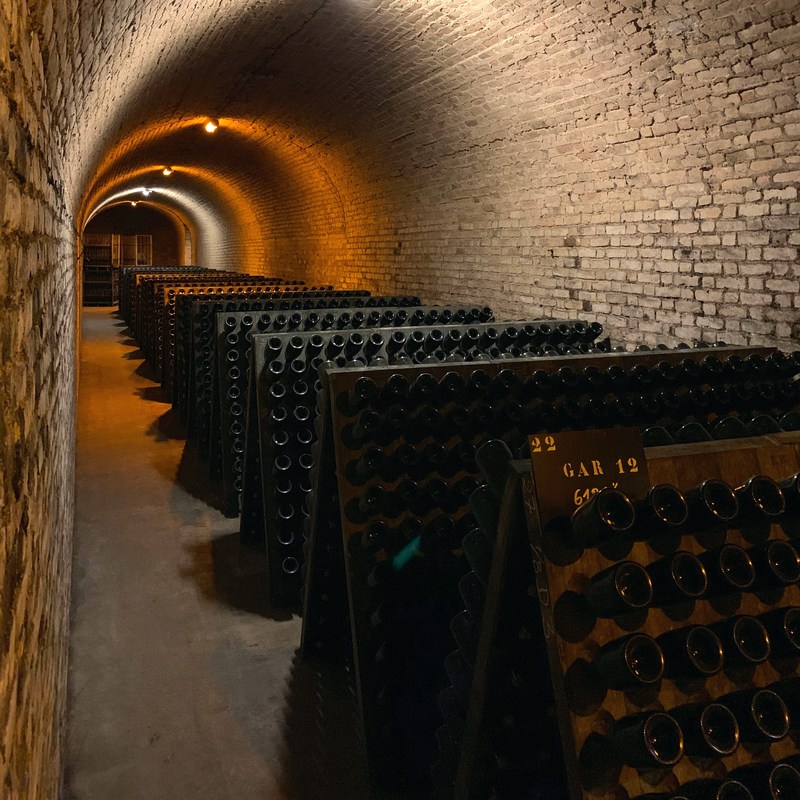
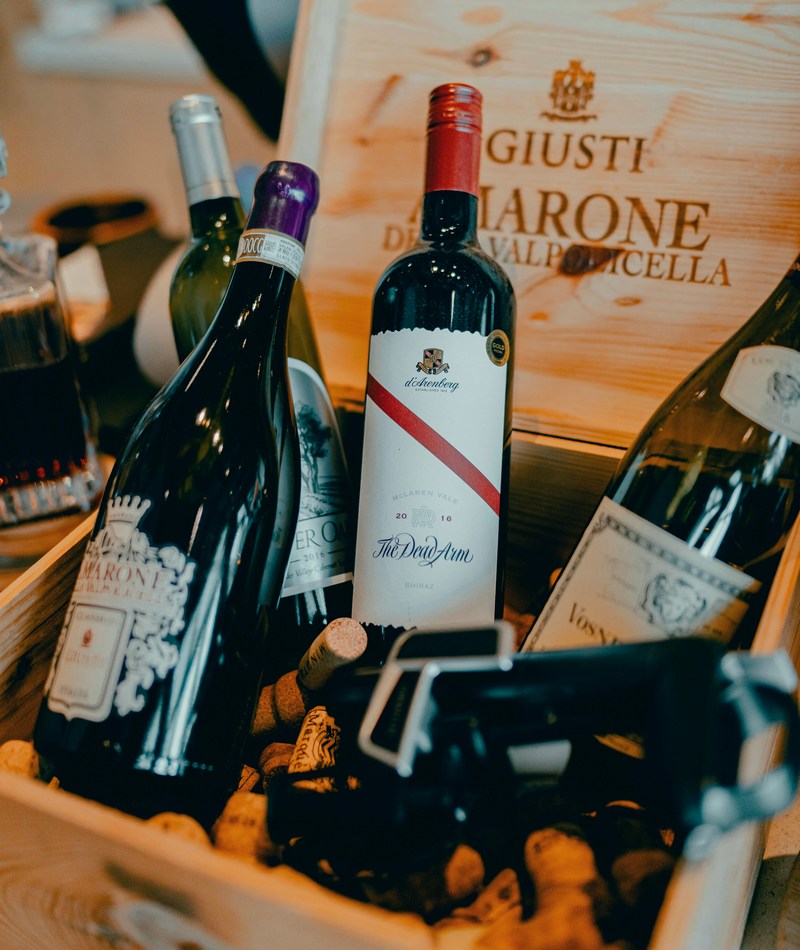
Diversify Your Collection
- By Region: Include wines from different parts of the world. Classic wine regions such as Bordeaux, Burgundy, and Champagne in France, Tuscany in Italy, Rioja in Spain, and Napa Valley in the USA are essential. Also, explore emerging regions like Australia, South Africa, and New Zealand.
- By Grape Variety: A diverse collection should include a mix of red, white, and sparkling wines, each made from different grape varieties. Consider classic varieties like Cabernet Sauvignon, Merlot, Pinot Noir, Chardonnay, Sauvignon Blanc, and Riesling. Don’t forget to explore lesser-known varieties such as Grenache, Sangiovese, and Chenin Blanc.
- By Vintage: Include wines from different years. Some wines are meant to be enjoyed young, while others can be aged for decades. A range of vintages will give you wines to enjoy now and wines to look forward to in the future.
- By Style: Make sure you have a variety of wine styles—light-bodied, full-bodied, sweet, dry, and sparkling. This ensures you have something for every occasion and every guest’s preference.
Focus on Quality over Quantity
- While it might be tempting to fill your cellar quickly, focus on acquiring high-quality bottles rather than just accumulating numbers. Quality wines, especially those from reputable producers and regions, are more likely to impress your guests and will often age better.
Consider Age-Worthy Wines
- Include some wines that are known for their aging potential, such as Bordeaux, Barolo, and certain Burgundy wines. These wines can develop complex flavors over time, adding depth to your collection.
- However, also include wines that are ready to drink now, so you can enjoy your collection as it grows.

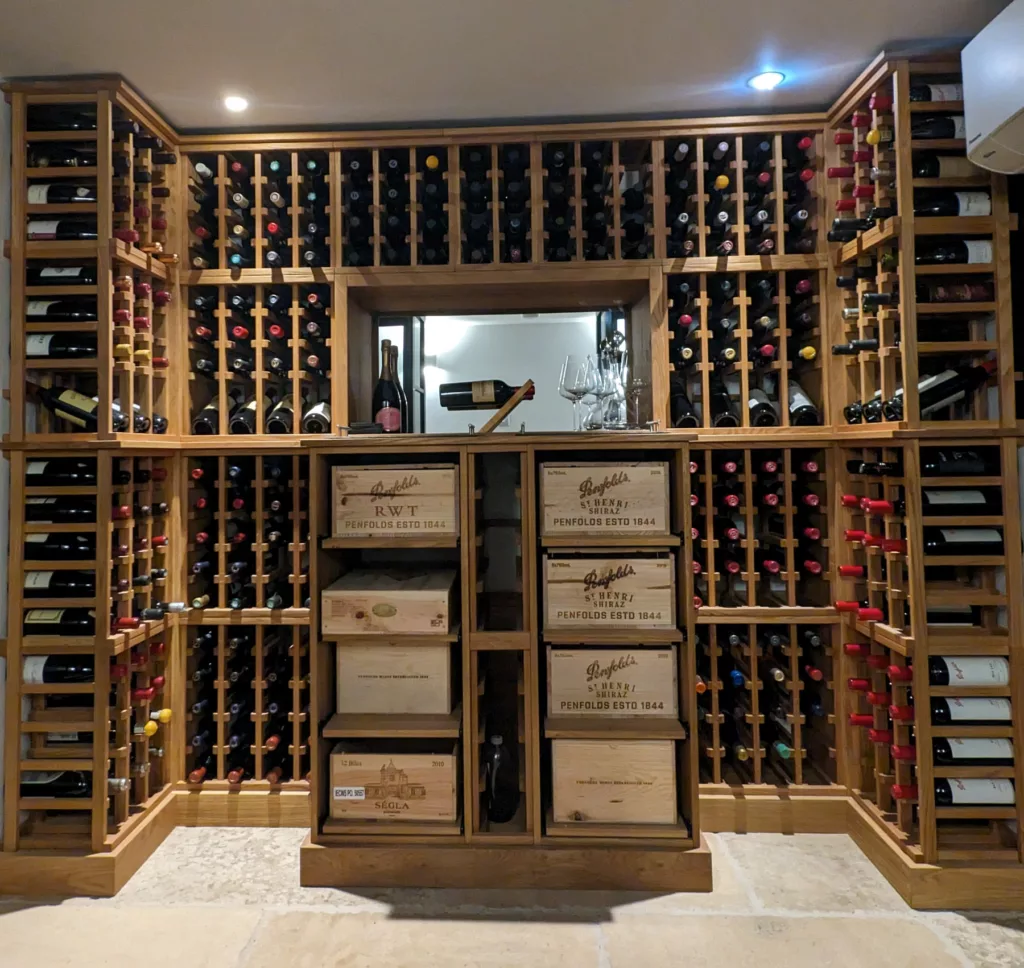
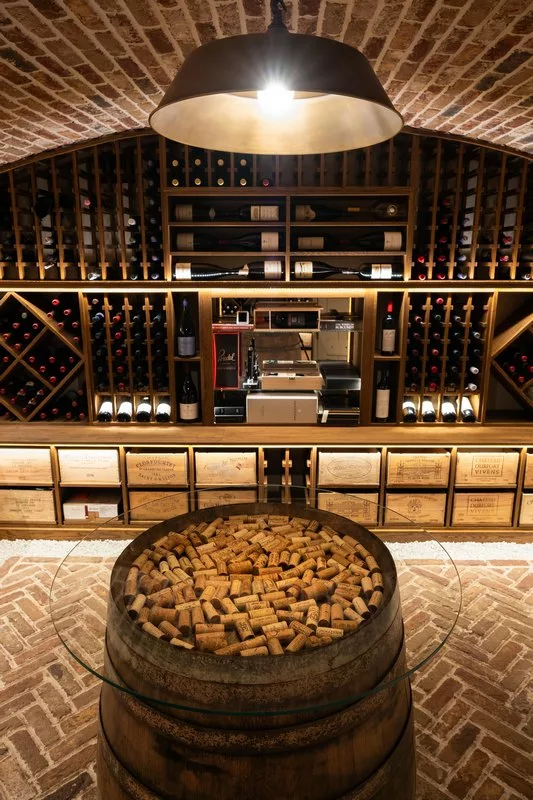
Invest in Proper Storage
Temperature Control
- Consistent Temperature: The most crucial factor in wine storage is maintaining a consistent wine temperature. Fluctuations can cause the wine to expand and contract, potentially damaging the cork and allowing air to seep in, which can spoil the wine.
- Avoid Extremes: Temperatures above 24°C can cause wine to age prematurely and lose its flavour. On the other hand, temperatures below 10°C can slow down the aging process too much, preventing the wine from developing its full character
Humidity Control
- Maintain Humidity Levels: Wine should be stored in an environment with a humidity level of around 60-70%. Proper humidity prevents the cork from drying out and shrinking, which could lead to oxygen exposure and spoilage.
- Avoid Excessive Humidity: While some wine cellar humidity is good, too much can encourage mould growth on the corks and labels.
Darkness is Key
- Protect from Light: UV light, especially sunlight, can cause wine to degrade, leading to unpleasant aromas and flavors.
- Invest in UV-Resistant Lighting: If your wine storage area requires lighting, consider UV-resistant bulbs or LED lights, which emit minimal heat and UV radiation.
Stable Environment
- Minimize Vibrations: Constant vibrations can disturb the sediments in wine, especially in older wines, and accelerate the aging process in an undesirable way.
- Dedicated Wine Storage: For optimal stability, consider investing in a dedicated wine fridge or wine cellar.
Wine Racks and Shelving
- Horizontal Storage: Store wine bottles horizontally to keep the cork moist. A dry cork can shrink, allowing air into the bottle and spoiling the wine.
- Custom Wine Racks: As your collection grows, you may want to invest in a custom wine rack to fit your cellar or storage area perfectly.
Wine Fridges and Cellars
- Wine Fridges: If you don’t have the space or budget for a full wine cellar, a wine fridge (also known as a wine cooler) is an excellent alternative.
- Wine Cellars: A well-designed wine cellar will maintain the perfect environment for your wines and can be a stunning feature in your home. Whether you convert a basement or build a custom cellar, this investment will protect your collection for years to come.
Balance Collecting and Drinking
- As you collect, don’t be afraid to open and enjoy your wines. Part of the fun of collecting is sharing your wines with guests and discovering what you like. Regularly tasting your collection will also help you refine your palate and make informed decisions about future purchases.
Keep Track of Your Collection
- Use a wine inventory app or a simple spreadsheet to keep track of what you have, including details like the purchase date, price, and ideal drinking window. This will help you manage your collection and ensure you’re drinking your wines at their best.
Seek Advice from Experts
- Don’t hesitate to ask for recommendations from wine merchants, attend wine tastings, and join wine clubs. This can introduce you to new wines and help you make informed purchases.


Stay Informed
- Keep up with wine trends, new releases, and vintage reports. This knowledge will help you spot great wines and make your collection more current and exciting.
Have Fun!
- Lastly, remember that collecting wine should be enjoyable. Collect wines that you love and are excited to share with others. The best collections are built with passion and curiosity.